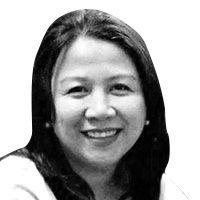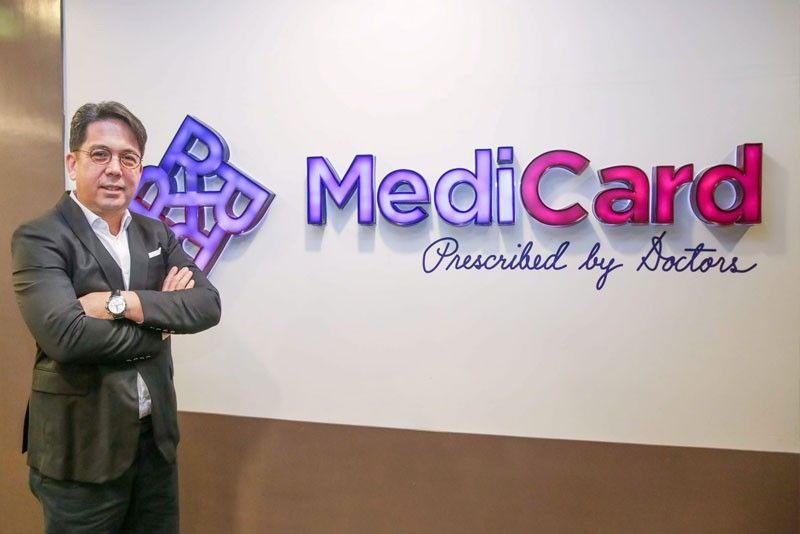The HMO run by doctors


‘It takes a doctor to negotiate with a doctor. We want to be sure that the right diagnoses and treatments are being given to clients,’ says Dr. Nicky Montoya, president, Medicard.
Health is wealth. When you are healthy, you are productive and able to make a good living. But a medical emergency or an illness does not only mean loss of earnings but can also wipe out a lifetime of savings.
Even the simplest surgery can really drain your resources as you pay for the hospital, the physicians who attend to you and the numerous tests you have to undergo. More sophisticated procedures that can cost hundreds of thousands of pesos are major crises.
There is no reason, however, why you cannot prepare for major medical expenses. You can start by adopting a healthy lifestyle so you reduce the possibility of getting sick.
But, as there is no way you can completely avoid medical problems, invest in Health Maintenance Organization (HMO) plans, which will help you cover the cost of better treatment and healthcare facilities, not only for yourself, but for your loved ones, too.
“Outpatient consultations are covered by HMOs, depending on one’s plan,” says Dr. Nicky Montoya. “Regular outpatient consultations can detect medical problems early and prevent more serious situations that will require more expensive procedures.”
An HMO will protect you from unforeseen health problems, because no matter how hard we try to avoid them, emergencies will arise.
This was what people behind MediCard had in mind when it set up the HMO in 1987.
Patients come first
MediCard wanted to respond to a pressing need. At a time, health costs were rising, but incomes were falling. Many people did not have the funds for treatment and medicines.
“My dad, who was a surgeon, was also the company doctor for some multinational firms in the country,” recalls Dr. Montoya. “These firms had their own little clinics where employees would go for immediate medical attention. But after the initial diagnosis, my dad had no control as to which hospital the patient would go to for further treatment. Most of the time, patients would self-medicate because they just couldn’t afford the services of a medical practitioner and the cost of hospitalization.”
The elder Dr. Montoya realized that if a person could just put away P1 per day — not a large sum, even then — he could afford hospitalization.
And so MediCard was created by Dr. Nicanor D. Montoya, father of the current CEO, and a group of eminent physicians from distinguished medical centers in the country. The HMO would provide quality comprehensive healthcare services to a large number of Filipinos — at a cost they could afford.
So how much is the cost of securing one’s health through MediCard?
“Just P18,000 per year for individual members. The cost is less if you’re employed by a company. Again, your P18,000 will go a long way — you’ll have an annual check-up, unlimited consultations, access to all MediCard clinics and partner hospitals, among others, depending on your plan,” says Dr. Montoya.
Prescribed by doctors, run by doctors
MediCard prides itself with the fact that it was founded by doctors and, to this day, is run by doctors.
What difference does that make?
“With owners being in the medical profession, more attention is given to the service. Also, it takes a doctor to negotiate with a doctor. We want to be sure that the right diagnoses and treatments are being given to clients. Investment is constantly being made to make quality healthcare services available to the ever-growing membership throughout the country,” explains Dr. Montoya.
Each of MediCard’s department has doctors. Cardholders are assured that the plan they avail of is recommended and approved by physicians.
HMO innovations
MediCard is also accepted in the widest network of fully accredited health facilities by DOH and Philippine Heart Center nationwide. Customer service is a top priority as the company has its own call center with over 120 agents in three locations on duty 24/7 to answer all calls.
MediCard was the first to introduce a telemedicine solution in the market. Called My Pocket Doctor, this allows members to consult with a medical expert in the comfort of their own home, office or anywhere using any phone or smart phone or computer.
“We’re trying to find ways to make it easier and faster. We have continuous dialogue with our partner doctors. As for processing diagnostics requests faster, you have to understand that each hospital has its own processes and requirements so we have to abide by that,” Dr. Montoya says.
MediCard also offers clients non-medical benefits like discounts in many restaurants, gyms, resorts and spas through the MediCard Engagement Program.
In the years to come, Dr. Montoya hopes that more and more people will look into healthcare from a different perspective.
“At MediCard, it is our vision to provide the best quality healthcare to as many Filipinos as we can. We will continue to innovate and provide the latest in healthcare and provide more access to quality health providers,” Dr. Montoya promises.



















